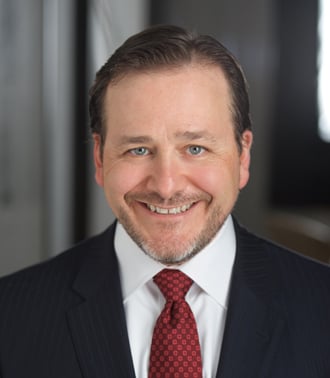Eighth Circuit Holds That TTAB Determination of Likelihood of Confusion Is Not Binding on Subsequent Infringement Action
Emerging Trends is a regular feature from Kaye Scholer, highlighting emerging legal or business issues and the potential impact such issues may have for companies or executives operating in a particular space. Below, Kaye Scholer Intellectual Property Partner Paul Llewellyn, Counsel Richard De Sevo and Associate Kyle Gooch discuss a recent decision concerning the preclusive effect, in a subsequent trademark infringement action, of the Trademark Trial and Appeal Board’s refusal to register a mark, in B&B Hardware, Inc. v. Hargis Industries, 2013 WL 1810614, 2013 U.S. App. LEXIS 8926 (8th Cir. May 1, 2013).
When the Trademark Trial and Appeal Board (TTAB) refuses to register a mark based on a finding of likelihood of confusion, does that finding have a preclusive effect in a subsequent trademark infringement action in federal court? In a recent decision, a divided panel of the U.S. Court of Appeals for the Eighth Circuit not only denied preclusive effect to a TTAB finding, but held that the district court properly excluded the finding from evidence.
B&B Hardware, owner of the mark SEALTIGHT, successfully opposed Hargis Industries’ attempt to register the mark SEALTITE. The TTAB found that there was a likelihood of confusion between the two marks. When B&B subsequently brought a trademark infringement suit in federal court, however, the judge declined to admit the TTAB finding into evidence and refused B&B’s request that the decision be given preclusive effect, or any deference whatsoever. A jury found that there was no likelihood of confusion between the marks.
The Eighth Circuit panel affirmed the district court’s ruling. First, because the TTAB is not an Article III court, the district court was not required to give the TTAB decision preclusive effect. Second, the factors the TTAB considers for trademark registration purposes differed from the factors considered under the Eighth Circuit’s likelihood-of-confusion test for trademark infringement. In particular, the TTAB test places greater emphasis on the appearance and sound of the marks, while the Eighth Circuit test places greater emphasis on marketplace usage of the marks and products. Third, the burden of persuasion was reversed. At the TTAB, Hargis had the burden; in the infringement action, B&B had the burden. For these reasons, the Eighth Circuit agreed with the district judge that the TTAB’s ultimate conclusion was not entitled to preclusive effect and had minimal probative value, would have been misleading and confusing to the jury, and was properly excluded from evidence.
The dissenting judge would have given preclusive effect to the TTAB’s determination of likelihood of confusion, at least in cases where the TTAB had considered the marks in a marketplace context. The different analytical approach taken by the TTAB was not enough, according to the dissent, to justify re-litigation of the issue.
The case is B&B Hardware, Inc. v. Hargis Industries, 2013 WL 1810614, 2013 U.S. App. LEXIS 8926 (8th Cir. May 1, 2013).
Paul Llewellyn, Co-Head of the firm’s Trademark, Copyright and False Advertising Group, has extensive experience in intellectual property related matters, including trademark infringement, trademark counterfeiting, licensing, copyright, design patent, false advertising and consumer fraud litigation. Paul also has substantial experience in trademark clearance and registration, transnational trademark enforcement and protection, intellectual property licensing, trade secret protection, defamation and right of publicity matters, as well as intellectual property due diligence arising from corporate transactions. He can be reached at Paul.Llewellyn@kayescholer.com
IP Counsel Richard A. De Sevo has extensive litigation, class action and counseling experience in trademark, trade dress, false advertising, consumer fraud and copyright matters. Contact Richard at Richard.DeSevo@kayescholer.com
Kyle Gooch is an Associate in the Litigation Department of Kaye Scholer’s New York office. He has participated in bench trials involving trademark infringement and copyright licensing issues. He can be reached at Kyle.Gooch@kayescholer.com.

